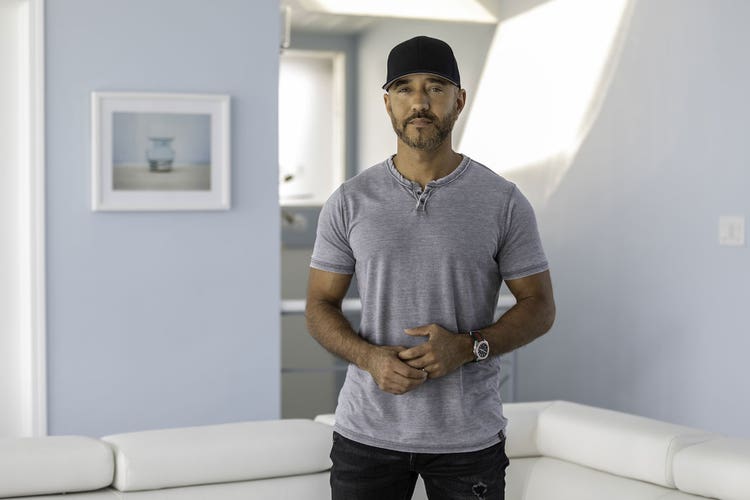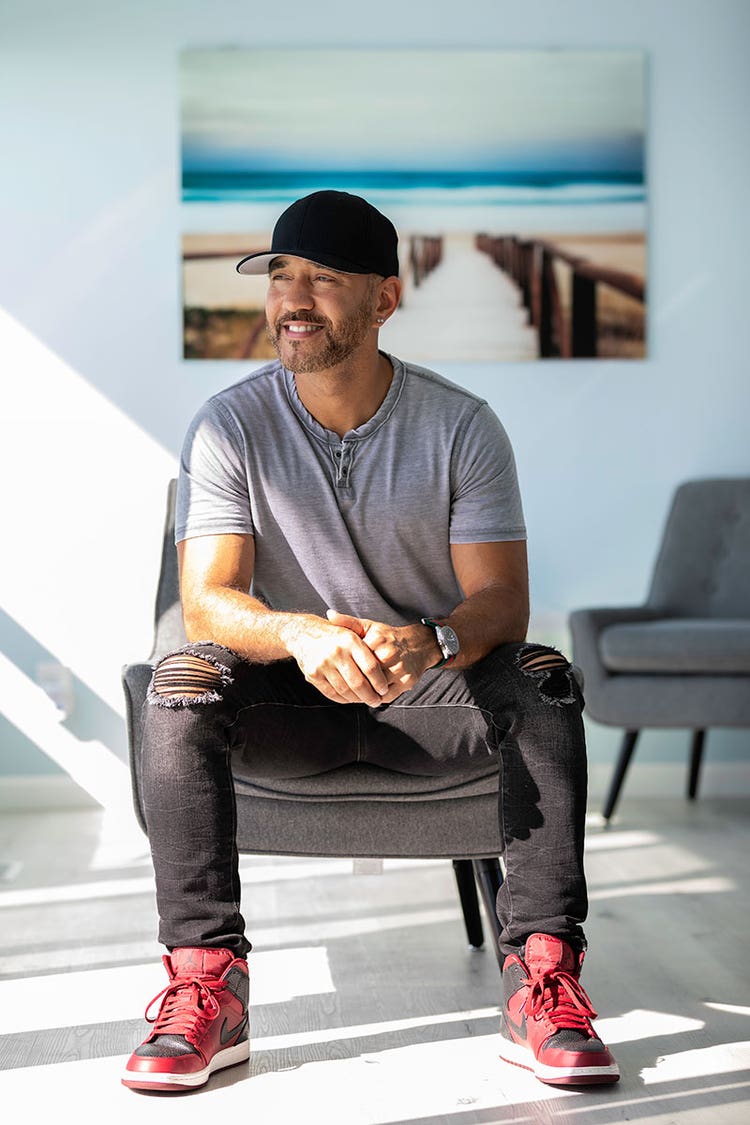Shawn Stevenson Says This Is the Competitive Advantage We Need

“The road to success is constantly under construction”– Shawn Stevenson
You know Shawn Stevenson as creator of the “The Model Health Show” and author of the best-selling book “Sleep Smarter: 21 Essential Strategies to Sleep Your Way to a Better Body, Better Health, and Bigger Success” (Rodale, 2016). His guests are on the cutting edge of health and wellness, and that’s one advantage that’s made his podcast the No. 1 health podcast on iTunes. He’s a gifted speaker—and it’s no surprise that he’s just wrapped up the “Take Control” series of events staged by another renowned speaker, Eric “ET” Thomas, Ph.D.
But the real secret to Stevenson’s success might not be his drive, his business acumen or any other of his many talents. It’s generosity.
Expertise doesn’t make you a great speaker, and Stevenson has, on occasion, found himself coaching great minds to be comfortable on the air and better storytellers. And at the “Take Control” event series, Stevenson has given the next generation of entrepreneurs the wisdom that just might vault some of them into the stratosphere: Take care of your own health and wellness.
“We’re sending people into space on vending-machine food,” Stevenson says, shaking his head. It’s a sobering thought, that rocket scientists are fueling their work with pretzels. Stevenson often points out that people don’t do well because they don’t feel well. “Just imagine what we can create if we get people on the good stuff,” he adds.

Competitive advantage comes from good health

It was natural for Stevenson to venture into health and wellness after he planned and achieved his own recovery following a broken hip (unheard of in a 15-year-old track star) and devastating diagnosis of degenerative disk disease. As a result of his deep study on how to heal himself, he also became a leading-edge voice, bringing the conversation on sleep, stress and overall lifestyle and wellness to the mainstream. Now he’s being recruited to speak at business-related conferences because many entrepreneurs and businesspeople are getting serious about their health and fitness.
The good news is that advice is sticking. “The ‘grind your face off, sleep when you’re dead’ mentality is giving way,” Stevenson says, especially in today’s environment. “Everybody has access to the same tools and the same information. The competitive edge is your energy. It’s your ability to be creative and to focus.”
Even the tools we all have at our disposal can work to our disadvantage when we’re not in top form because the tools themselves promote distraction. Stevenson calls them “just checks”: just checking your phone or social media for a minute. And he has the facts on the toxic combination of sleep deprivation and “just checks,” citing studies that show how short-changing your sleep by an hour leads to a 20 percent greater chance of “cyberloafing”—getting distracted from a specific task by a “just check” that leads you down an internet rabbit hole.
Stevenson says small changes geared to health and wellness “give people huge leverage because today, it’s about execution, output, content creation and service—you can’t do these things if you feel like crap.”
Pick a target

Stevenson attributes his own success to making what he’s teaching or talking about as simple as possible so it’s accessible for everybody. He picks an example out of the air: talking about the role of insulin and getting glucose into a cell in terms of getting into a nightclub. He loves making subjects fun, but he’s equally passionate about action, as in, “Here’s three specific things you can do today to get these results. And I’ve got the facts to prove it.”
The diversity Stevenson has seen at the “Take Control” events is inspiring, he says, and reminds him of his beginnings. It’s also clearly the start of a path of generosity. Stevenson started out teaching a nutrition class to a handful of people at his mother-in-law’s house: three people, to be precise. “I knew two of them, and I was still terrified,” he says with a laugh.
But when Stevenson shifted his attention to their needs and what he could do to serve them, he quickly grew comfortable—and the group grew from three to six to 20 people, then larger audiences at Whole Foods and other venues and now thousands at special events like “Take Control.”
That focus on the people in the room allowed Stevenson to gradually address the needs of an increasingly diverse audience. His ever-present attention means Stevenson finds ways to speak the language that’s relatable to his core audience and newcomers.
That little voice changes

“Unconscious incompetence.” That’s where Stevenson says he—and most of us—start our journey, not knowing what we don’t know, much less that we have choices. Then, as we gain awareness, we become conscious of our lack of knowledge, and eventually we learn to make choices.
The process has a neurological phenomenon associated with the physiology of change. Making a choice that’s different from an old habit—and doing so repeatedly—forms new neural pathways, and the body begins to generate myelin along those pathways to protect them as new habits. Stevenson calls this delicate process a period of “conscious competence,” when you have moments of mental resistance because you had a morning bagel for 10 years and you’ve only been whipping up a green protein smoothie for three weeks.
Once ingrained, those habits reflect “unconscious competence” because they’re second nature—whether they are biceps curls with proper form or meal prepping, or journaling first thing instead of a “just check” when the alarm goes off. You know you’ve achieved “unconscious competence” when skipping a few days of that good habit feels bad.
Stevenson has reached that point in addressing his entrepreneur audience, where he is able to observe—and improve—on the fly. (It’s also called mastery.) “I can ask myself, ‘How can I get better?’ on the spot and help to change the impact and the influence that’s happening.”
For best results

From Stevenson’s perspective, choices lead to outcomes. “For me, results are outcomes from action or inaction,” he explains. More important, he says, “Positive results don’t mean that you won. The road to success is constantly under construction.”
That’s because you stop doing something that works (back to the bagel) or because you didn’t get the results you wanted and think you’ve lost. “Those negative results are one of the most valuable gifts in our lives. … I remember Michael Jordan saying it’s only a failure when you make an excuse. Taking responsibility for failure gives us the power to change, learn, adjust and continue moving forward,” Stevenson says.
And for Stevenson, taking responsibility looks something like generosity … toward yourself. “Nobody can do your push-ups for you, nobody can eat your meals for you. There are things that you need to do to accomplish your goals,” he says. So, he asks, what kind of coach are you—for yourself?
“Are you a tough-love coach? If you are, then where’s the love part?” Stevenson asks. “Because at the end of the day, how you support your own mental construct and support yourself through your failures—and also your successes—really tells a tale of getting your results that you really want long term.”
Video credit: Todd Cribari, inspirostudio.com
Photo credit: LightFieldStudios, Thinkstock; Rawpixel, Thinkstock; Janie Airey, Thinkstock; Todd Cribari, inspirostudio.com
Grooming: Chanel